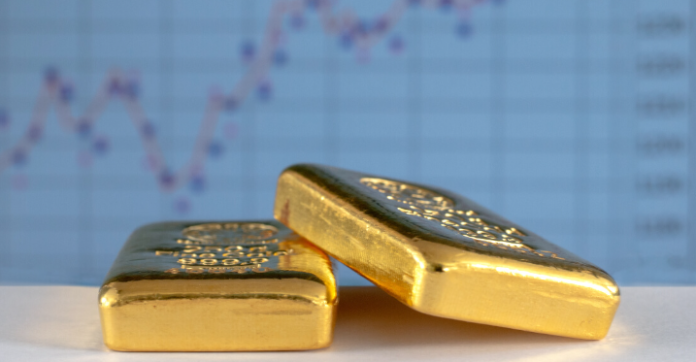Gold prices surged past $4,000 per ounce for the first time on October 8, 2025, creating extraordinary opportunities for Ghana’s gold sector, which has already generated over $8 billion in small-scale mining exports alone this year.
The precious metal closed at a record $4,004.40 per ounce after hitting an intraday all-time high of $4,014.60, with prices rising about 50% this year. The surge came as investors sought safe havens amid geopolitical and economic uncertainty, along with expectations of further Federal Reserve interest rate cuts.
For Ghana, the timing couldn’t be better. The Ghana Gold Board and Precious Minerals Marketing Company generated over $8 billion in foreign exchange from small-scale gold exports between January and October 15, 2025, nearly doubling last year’s figure of $4.61 billion. The revenue came from exporting 81,719.23 kilograms of gold.
That’s just from small-scale operations. Ghana produced a record 4.8 million ounces in 2024, with projections estimating growth to 5.1 million ounces in 2025. The country could potentially end the year with more than $16 billion in total gold exports if current trends continue.
The global rally reflects a perfect storm of economic factors. The surge coincides with the U.S. government shutdown that began October 1, but its 2025 run-up is rooted in ongoing trade policy and geopolitical tensions. The ongoing shutdown has left traders without crucial federal data, including the monthly jobs report, fueling investor anxiety.
Goldman Sachs raised its December 2026 price forecast for gold to $4,900 per ounce from $4,300, suggesting Ghana’s windfall could extend well into next year. Some analysts predict gold could average $4,400 per ounce in the first half of 2026 as the Federal Reserve continues to ease monetary policy.
Ghana’s gold sector has undergone significant structural transformation. Small-scale miners drove a growing share of production, jumping from 27% of total output in 2023 to 39% in 2024. The Ghana Gold Board’s reforms, including digital traceability systems and tighter licensing enforcement, have helped capture revenue that previously leaked through smuggling.
The windfall has already transformed Ghana’s economic landscape. Fiscal revenue from gold mining climbed from roughly $1.5 to $2.0 billion in 2022 and 2023 to about $2.3 billion in 2024, with projections near $3.0 billion in 2025. This includes mining royalties at 5% of output value and corporate taxes.
For the first time since at least 2016, gold exports in the first half of 2025 exceeded total imports for the same period, with gold earning $8.3 billion while imports amounted to $8.2 billion. The Bank of Ghana’s gross international reserves reached $10.7 billion, providing crucial support for the cedi’s relative stability.
However, experts caution that Ghana’s heavy dependence on gold prices creates vulnerability. A substantial downturn in global gold prices, perhaps triggered by de-escalation of geopolitical tensions, could drastically reduce dollar earnings and threaten the cedi’s stability.
Environmental challenges persist. Illegal mining, known locally as “galamsey,” continues to threaten both revenue streams and ecological stability. Critics question whether the surge in small-scale mining reflects genuine production increases or whether previously smuggled gold is now being captured in official statistics.
Physically backed gold exchange-traded funds have added 634 tonnes year to date, with holdings just 2% below their 2020 peak, suggesting substantial room for continued investor demand. Central banks, including China’s, have been adding gold to their reserves for months, with China purchasing gold for the 11th straight month in September.
The current gold rally represents Ghana’s most lucrative commodity cycle in decades. Whether the country can translate this windfall into lasting economic transformation while addressing environmental degradation remains the critical question. What’s certain is that at $4,000 per ounce and potentially climbing higher, Ghana’s gold mines have become economic powerhouses generating unprecedented wealth for a nation that has long depended on the precious metal.
Source: newsghana.com.gh











